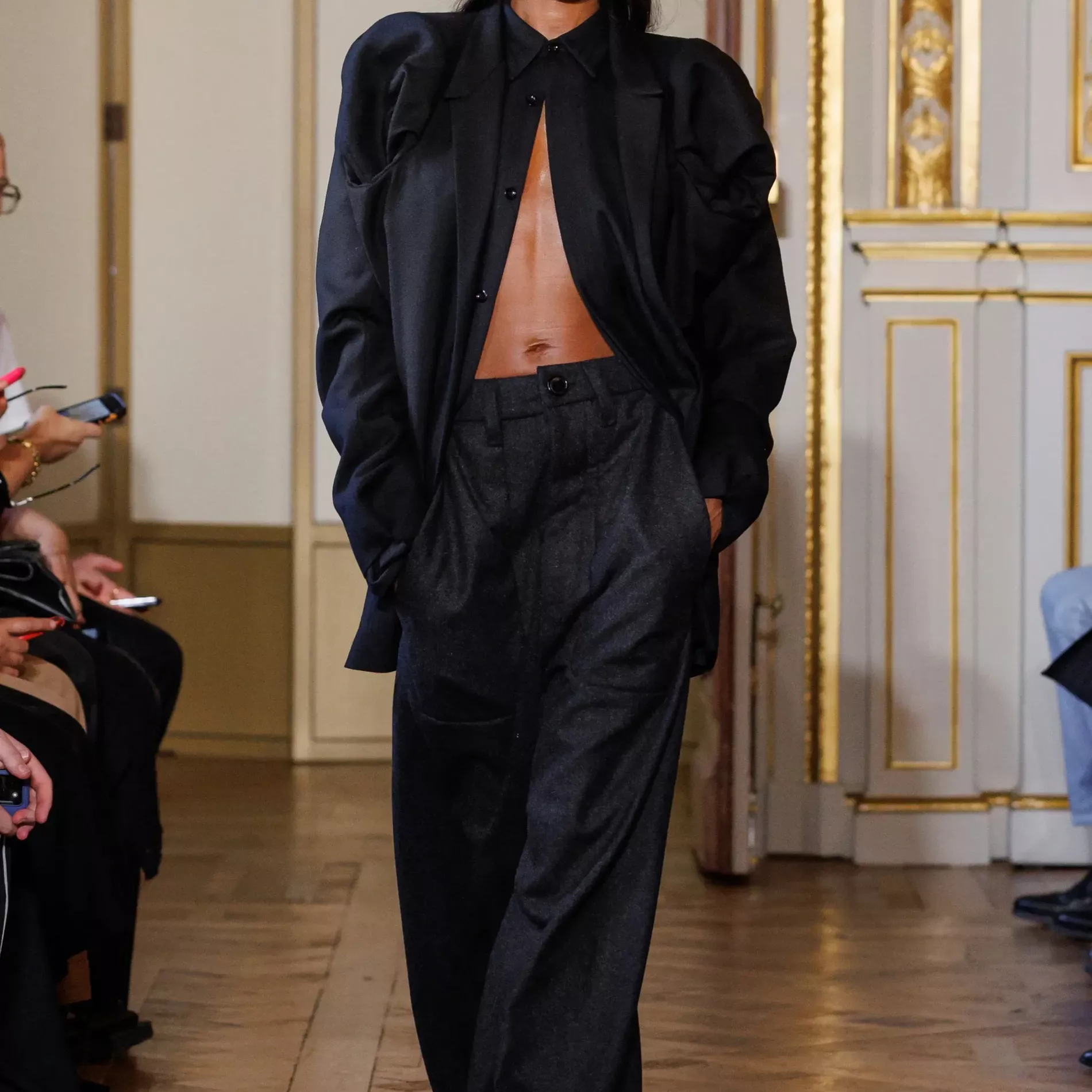While there was a disappointing lack of progress on the sustainability front this fashion month, there are, luckily, a number of younger brands leading the way, from Ahluwalia to Chopova Lowena. This season, a wave of new designers joined that list, showing what can be done with pre-existing materials, as well as highlighting the importance of craftsmanship and preserving traditions.
Below, we caught up with three eco-minded designers to watch from the spring/summer 2024 shows.
Torishéju
British-Nigerian-Brazilian designer Torishéju Dumi created her first capsule collection, “Mami Wata”, in January this year, after graduating from Central Saint Martins in 2021. Her debut show, held on the final day of Paris Fashion Week, was one of the most buzzed-about this season.
How did it feel to have Naomi Campbell and Paloma Elsesser walking your debut Paris Fashion Week show?
I’m still quite overwhelmed. I haven’t actually processed everything that’s happened; it’s unreal. I can’t find the words to describe how much it means to me. After graduating, [Vogue’s global contributing fashion editor-at-large] Gabriella Karefa-Johnson [who styled the show] reached out to me and said I really like your work and if you ever need anything, just let me know. So earlier this year, I reached out to Gabriella and proposed that we work on a show together, and we just went on from there. [It’s made me] realise that anything’s possible: you don’t have to look a certain way to create certain things.
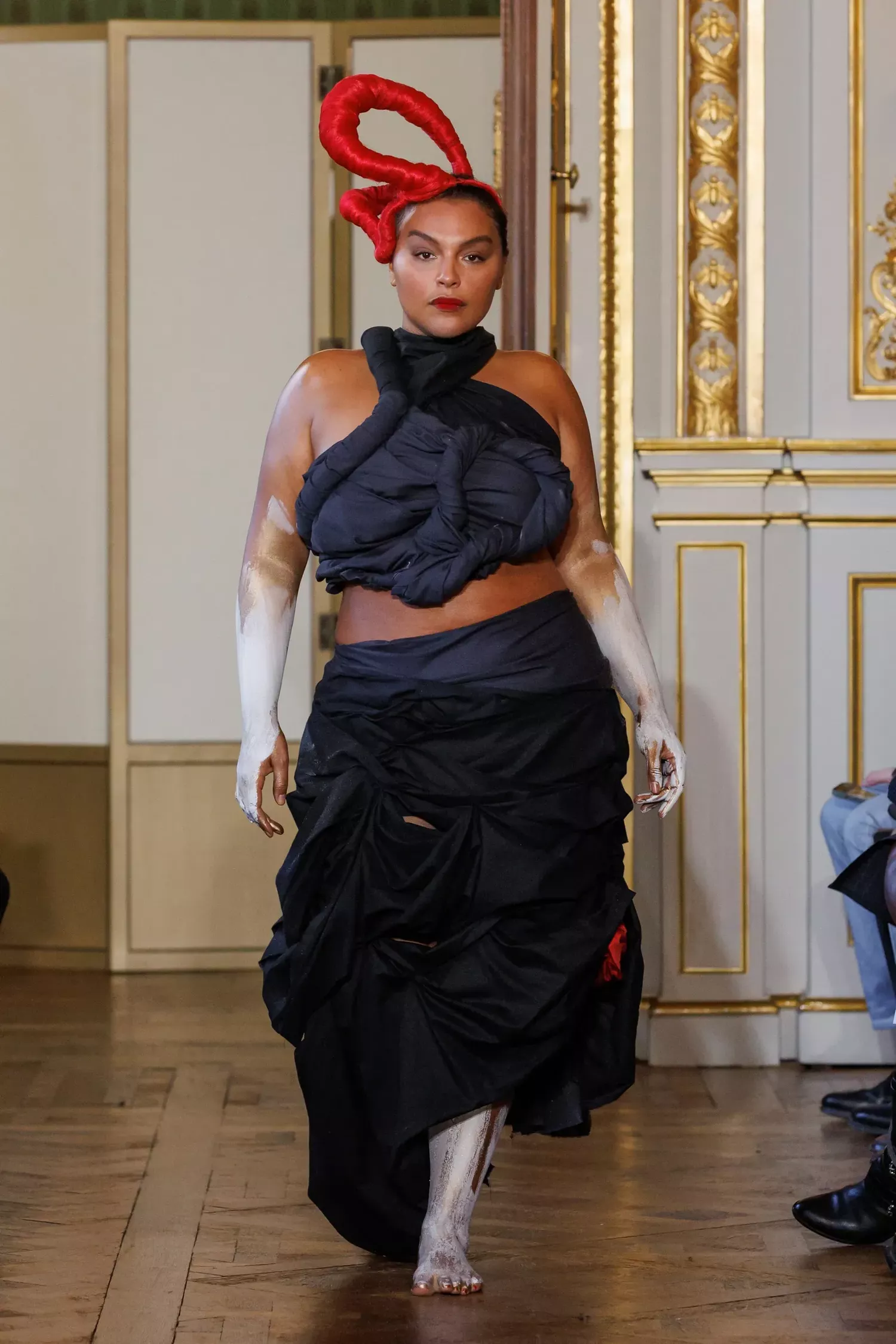
Torishéju SS24. Photo: Courtesy of Torishéju
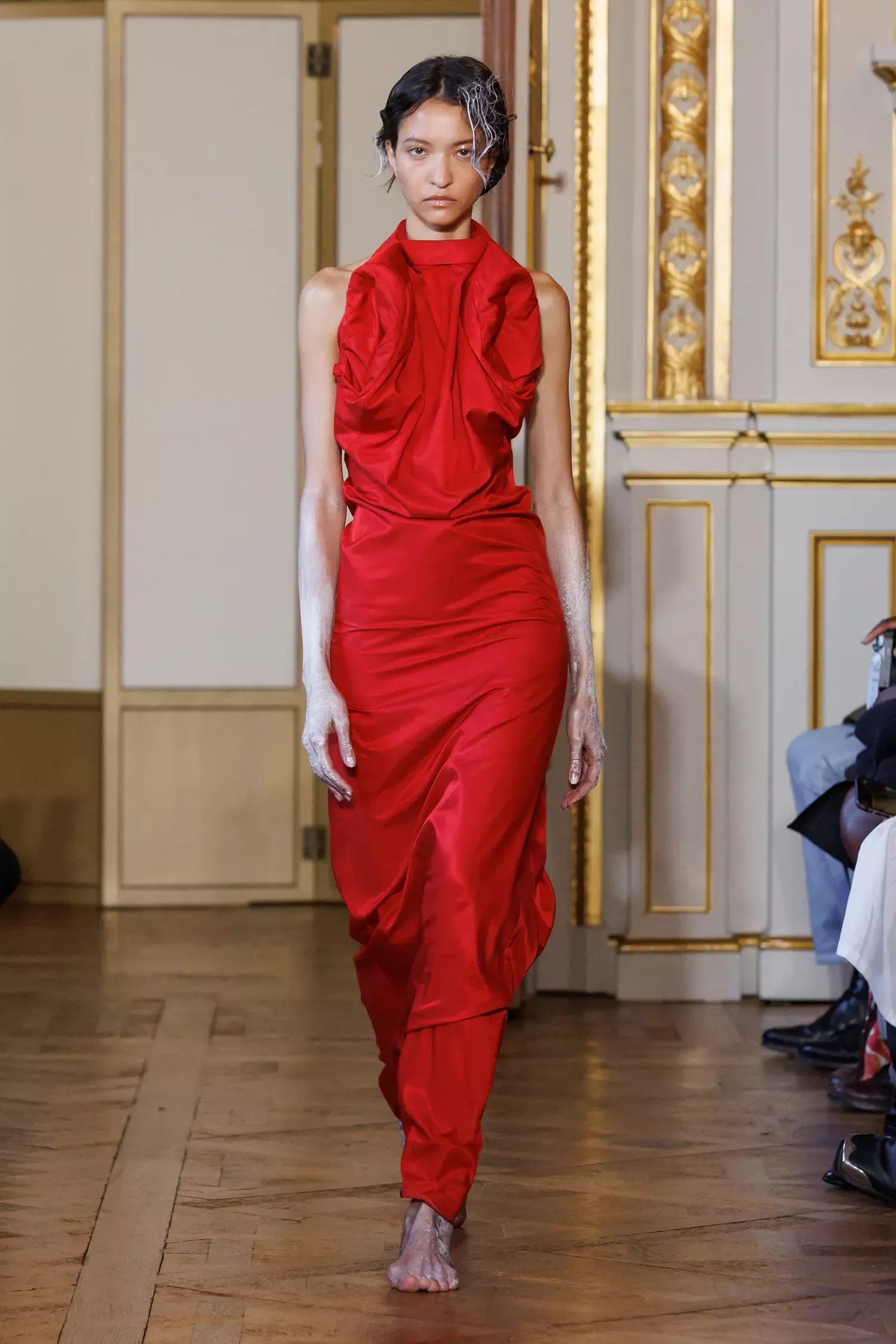
Torishéju SS24. Photo: Courtesy of Torishéju
What was the inspiration behind the collection?
When I was starting the collection, I was really thinking about the phrase “Fire On The Mountain”, because it was something that my mother used to say to us quite often when we were crossing the road: “Fire on the mountain, run, run, run.” It’s that urgency that’s constantly in my head.
I was inspired by my upbringing with the men and women wearing wrappers, tying wrappers around them, African mothers tying wrappers on their back to carry their babies. The wrap dresses that I created this season look like normal dresses, but they have a big tie at the back where they wrap around you. It’s this idea of just putting something on and going, just moving with time.
What does sustainability mean to you?
Sustainability for me has come out of necessity, out of a lack of having. I used all deadstock materials in this collection – some materials were donated by Craig Green, very kindly, who has almost been like a mentor. Other fabrics came from wholesale companies in London that had end rolls, like two or three metres of fabric.
Right now, I’m speaking to buyers about placing smaller orders. There are millions of designers out there; there doesn’t need to be, like, a 100 pieces of my garments in one store. It doesn’t make sense to me.
Tolu Coker
British-Nigerian designer Tolu Coker held her first runway show at London Fashion Week, as part of the British Fashion Council’s NewGen initiative. Since launching her eponymous brand in 2018, her designs have been worn by the likes of Rihanna and Thandiwe Newton.
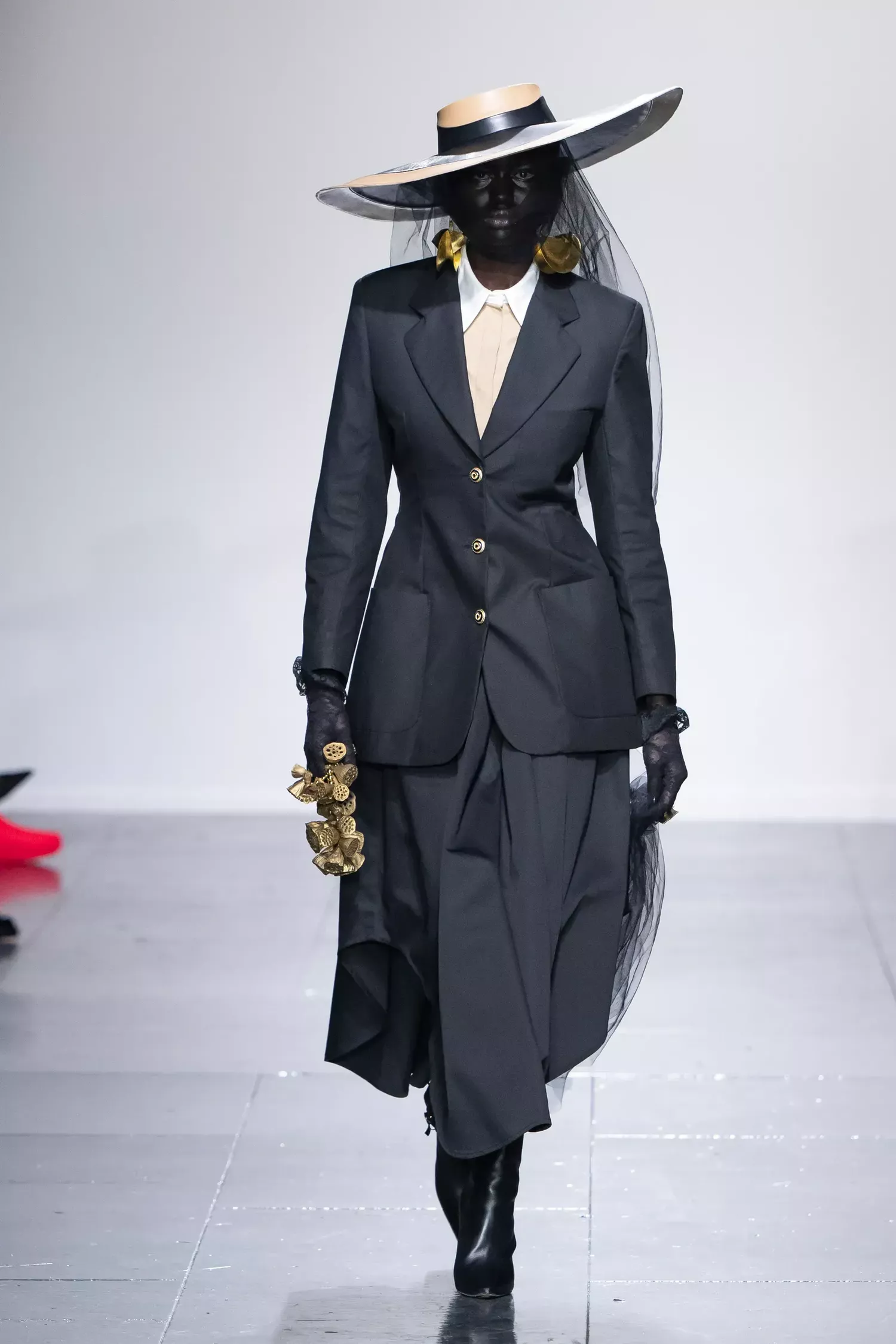
Tolu Coker SS24. Photo: Victor VIRGILE/Getty Images
What was your starting point for this season?
A big part of it was really analysing how spirituality’s been preserved across the African diaspora. It started with my own family background, which is the Yoruba people of Nigeria. And it’s interesting, because today it’s known as a tribe or as a culture, [and] it’s also a language. But in its earliest origins, everybody who’s Yoruba is descended from people who worship certain deities and lived in a particular way, so it’s a religion.
How did these ideas translate onto the catwalk?
For me, the biggest thing was about creating a sacred space. I didn’t want people to just come to my show and spectate; I wanted people to feel immersed in the experience of what it is to step inside a particular culture that has been, I think, very much othered. It was a very vulnerable moment where I shared my actual naming ceremony, which took place in my childhood home.
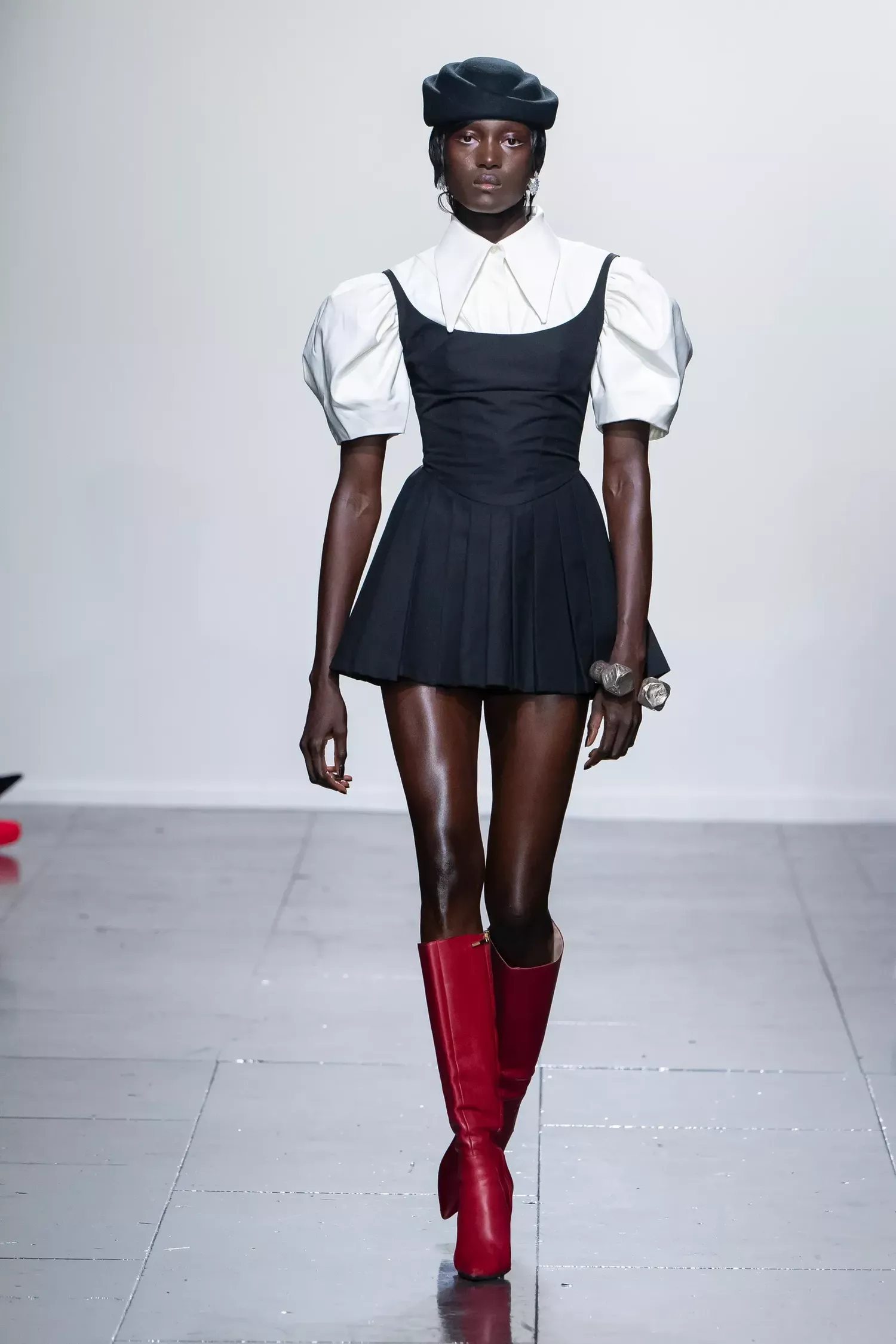
Tolu Coker SS24. Photo: Victor VIRGILE/Getty Images
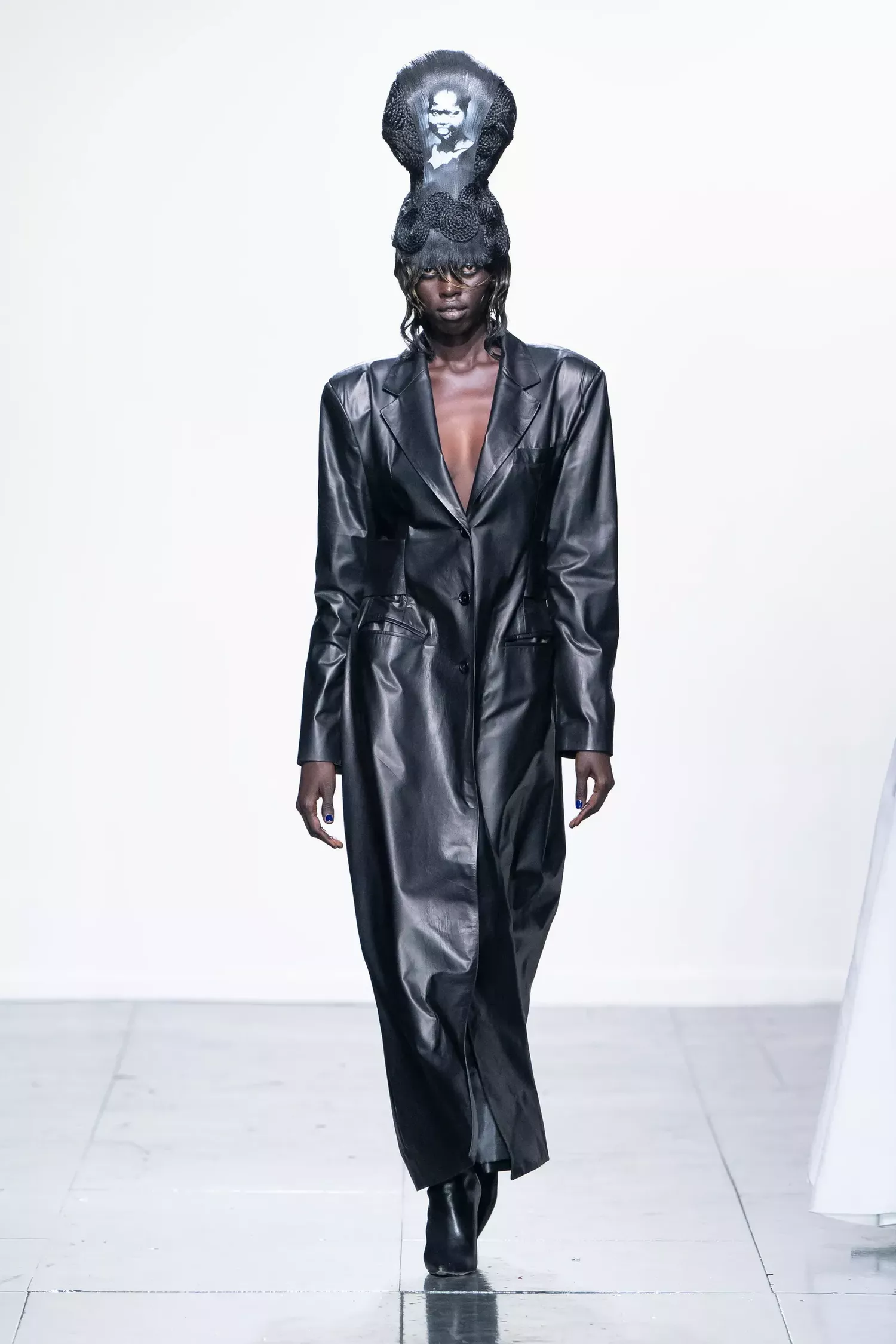
Tolu Coker SS24. Photo: Victor VIRGILE/Getty Images
I’ve also been looking at hair as symbols of spirituality and of cultural preservation, and how especially braided hair was so significant for Black communities. The headpieces were created in collaboration with a dear friend, Efi Davies, and the Toni & Guy team. One of the headpieces featured an image of my grandmother – having printed or woven images of family members who have passed is something that you have in funeral practices in Yoruba culture.
What’s your approach to sustainability?
Most of the collection is deadstock material; the jacquard was woven from pre- and post-consumer waste. In terms of production, everything’s produced here in London; I know all my factories. There’s a lot of craftsmanship as well which goes into creating these pieces.
There was quite a bit on the runway that had actually come from previous collections – that was very intentional. A big part of my brand philosophy is also about heirloom clothing; we’re creating quality pieces to be passed down. As designers, we have a responsibility to say we want you to invest in this long-term, and we want you to cherish and value it.
Paolo Carzana
Since graduating from CSM in 2020, Paolo Carzana has quickly become one to watch, thanks to his eco-conscious practices and fluid designs. This season, the Welsh designer introduced womenswear for the first time.
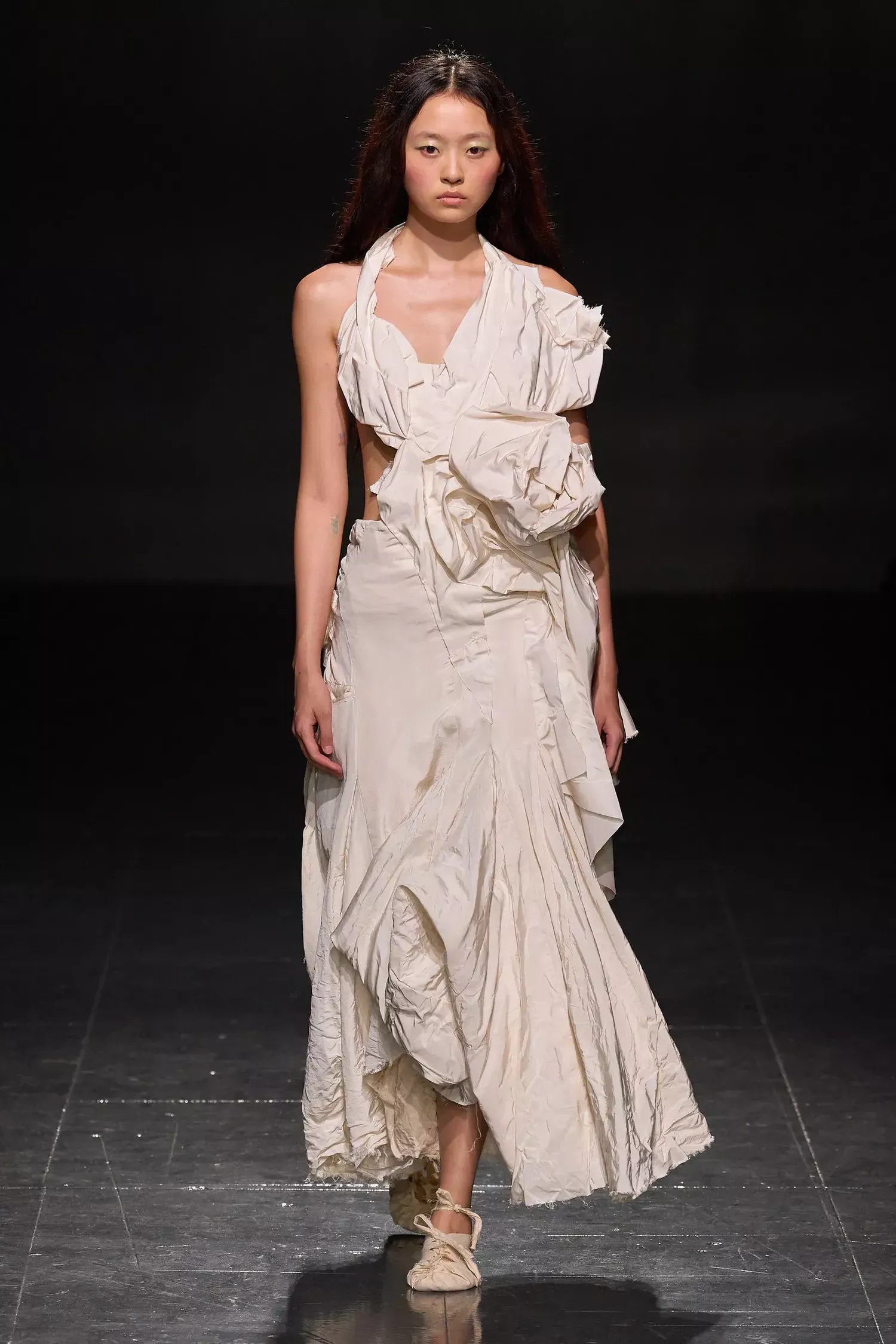
Paolo Carzana SS24. Photo: Filippo Fior / Gorunway.com
How did the process for creating your spring/summer 2024 collection begin?
Everything I do I make myself, apart from the hats; I pattern cut, sew, construct. I produce the personal and wholesale orders myself, too. So that’s why I had such a short amount of time to work on the new collection: four weeks from start to finish. It was very instinctive; I had to just go with my gut.
The title was 'My Heart Is The River For You To Bend', and it was really emotional in the sense that, over the last few years, we’ve collectively experienced a lot of loss. The idea is that our hearts have taken so much, but they haven’t broken, although they’ve been bent and moved. I remember when the musician Sophie passed in January 2021, it was a really devastating moment, I think, because she represented so much to so many people. It was a moment where so much was going on that we didn’t even really have time to acknowledge someone’s passing, and so I really wanted this collection to be dedicated to her.
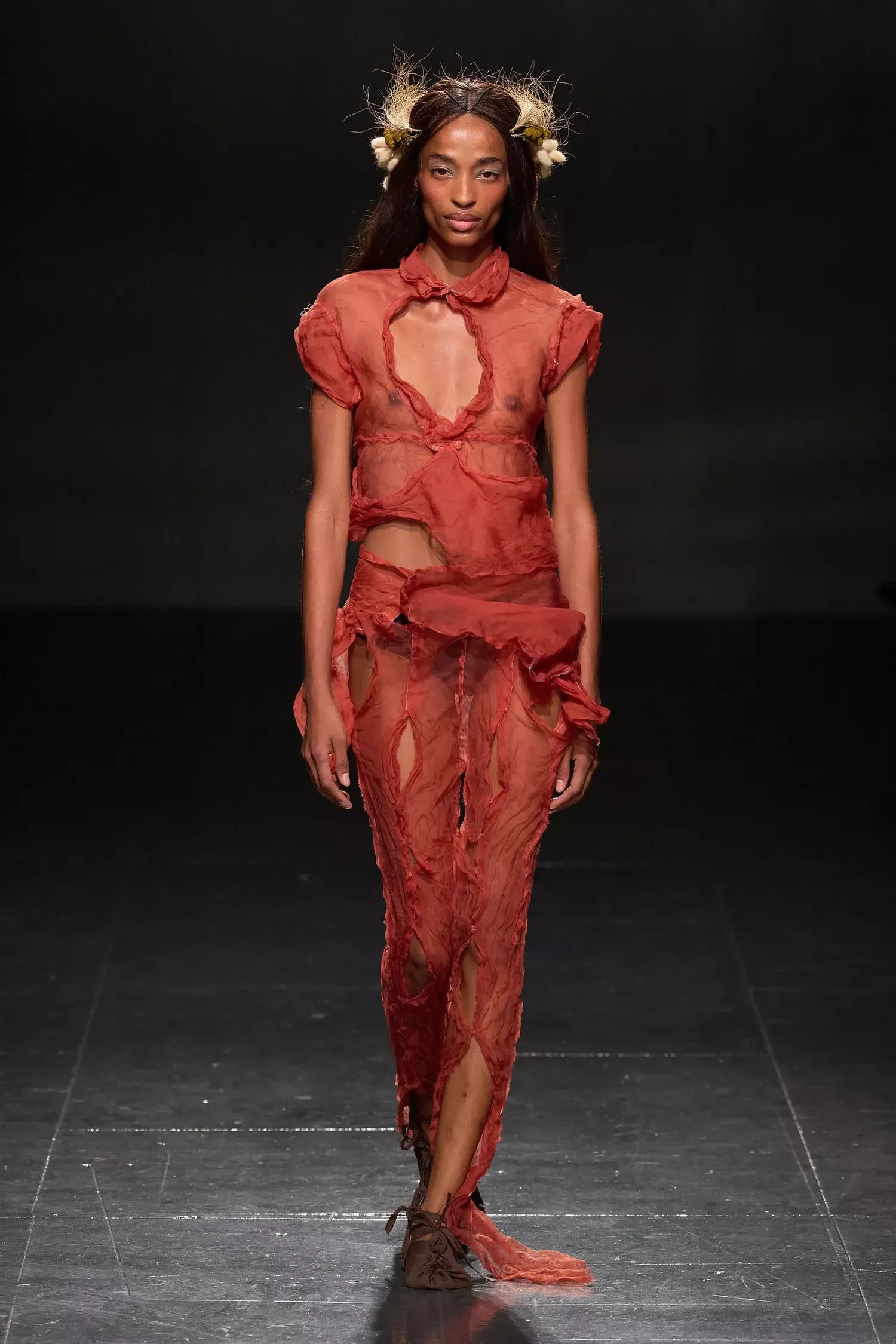
Paolo Carzana SS24. Photo: Filippo Fior / Gorunway.com
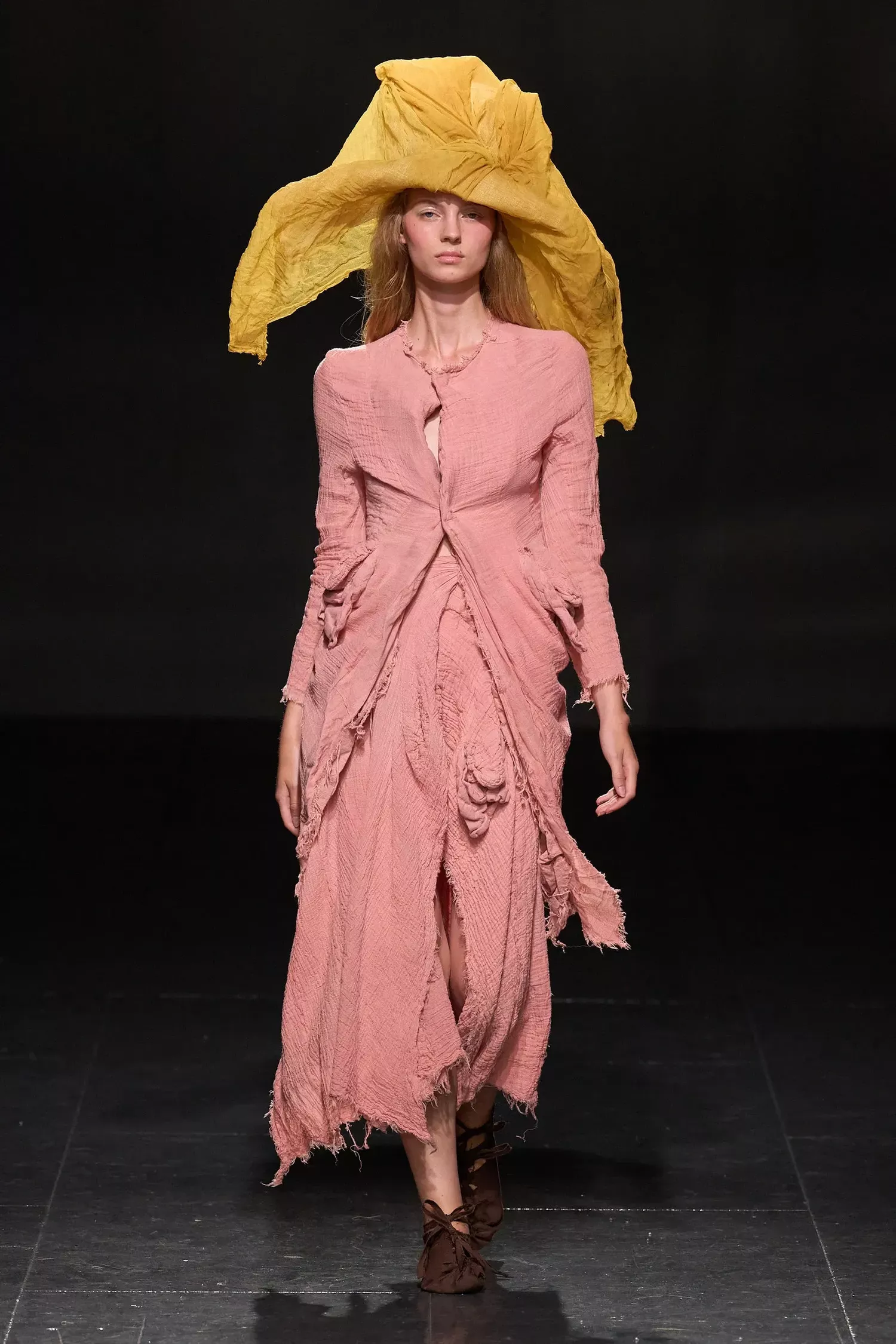
Paolo Carzana SS24. Photo: Filippo Fior / Gorunway.com
Can you tell me a bit about your sustainable practices?
In terms of materials, everything is either antique materials I found at Portobello Market or organic materials from this company in Wales, which is where I’m from. I find it the opposite of limiting because it means you can make the fabric your own by dyeing it, waxing it, manipulating it in whatever way you want.
It was when I was working on my final BA collection at the University of Westminster back in 2018 that I started working with plant-based wax, creating my own plant-based dyes and working with found materials. It happened really organically.
Your quote “Imagine We Could Be The Ones That Change It All” is included in the Rebel: 30 Years of London Fashion exhibition at The Design Museum. Why is this sentiment so important to you?
I scribbled that quote in my sketchbook in college. I think it just has to be that way. We have to go in with a completely new and heartfelt idea of what we want fashion to be. I sometimes feel a million miles away from what people think the industry is, and what people think fashion is, because to me it’s so much rooted in craft and in emotion.
Originally published in British Vogue
